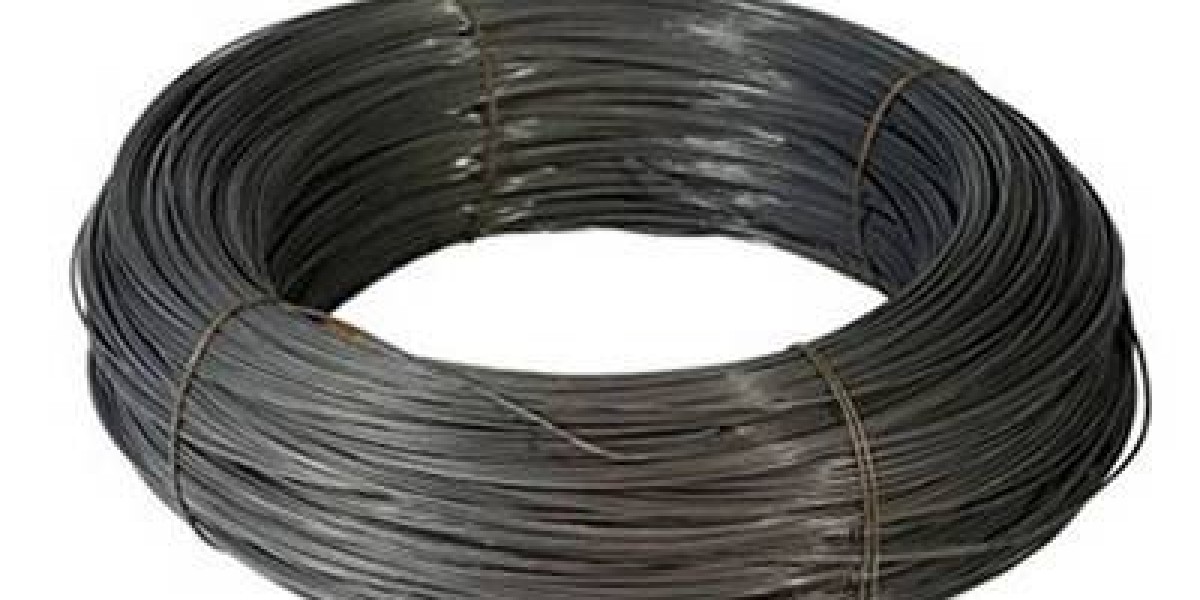This process involves heating the black annealed wire to a high temperature and then cooling it slowly. The result is a wire that possesses enhanced ductility and malleability, making it easier to work with compared to non-annealed varieties.
Key Characteristics
Color: The term "black" refers to the wire's surface appearance, resulting from the oxidation during the annealing process.
Strength: It retains substantial tensile strength, making it suitable for demanding applications.
Ductility: Enhanced flexibility allows for various bending and shaping without breaking.
Corrosion Resistance: While not as resistant as galvanized wire, it can be treated to improve durability in certain environments.
The Manufacturing Process of Black Annealed Wire
Understanding the manufacturing process is essential to grasp the quality and applications of black annealed wire. The production typically involves the following steps:
Wire Drawing: Raw steel wire is drawn through a series of dies to achieve the desired diameter.
Annealing: The drawn wire is heated in a controlled environment, often in a hydrogen atmosphere, to prevent oxidation.
Cooling: After reaching the appropriate temperature, the wire is cooled slowly to ensure uniform properties throughout.
Spooling: The annealed wire is wound onto spools for ease of transport and storage.
Quality Control Measures
Throughout this process, rigorous quality control measures are implemented. These include:
Tensile strength testing
Ductility assessments
Surface inspection for uniformity and defects
Applications of Black Annealed Wire
Black annealed wire is utilized across various sectors due to its unique properties. Here are some prominent applications:
1. Construction Industry
In construction, black annealed wire is used for binding and reinforcing concrete structures. Its strength allows for secure tying of rebar, ensuring stability in buildings and infrastructure.
2. Fencing
Due to its flexibility and strength, black annealed wire is often employed in fencing applications. It provides robust support for both residential and agricultural fencing solutions.
3. Manufacturing and Fabrication
Many manufacturers prefer black annealed wire for its ease of manipulation. It is commonly used in the production of:
Wire mesh
Nails and fasteners
Spring applications
4. Arts and Crafts
Artists and crafters appreciate black annealed wire for its aesthetic appeal and workability. It is frequently used in sculptures, jewelry making, and decorative projects.
Benefits of Using Black Annealed Wire
The use of black annealed wire comes with numerous benefits:
1. Cost-Effective
Compared to other wire types, black annealed wire offers a balance of performance and cost, making it an economical choice for large-scale projects.
2. Enhanced Workability
The ductility of black annealed wire enables easy manipulation, allowing for intricate designs and forms without compromising strength.
3. Availability
This wire is widely available in various gauges and lengths, catering to the diverse needs of industries and consumers alike.
4. Environmental Considerations
As a non-galvanized wire, black annealed wire is often perceived as a more eco-friendly option, especially in applications where the long-term environmental impact is a concern.
Comparison with Other Wire Types
When choosing between black annealed wire and other wire types such as galvanized or stainless steel wire, it’s important to consider the specific requirements of your project:
Galvanized Wire: Offers superior corrosion resistance but may lack the flexibility of black annealed wire.
Stainless Steel Wire: Provides exceptional strength and rust resistance, ideal for harsh environments, but comes at a higher cost.
Conclusion
In summary, black annealed wire is a crucial material with extensive applications across various industries. Its unique properties, including strength, flexibility, and cost-effectiveness, make it an ideal choice for both industrial and creative uses. Understanding its characteristics, manufacturing processes, and applications can help you make informed decisions in your projects.



